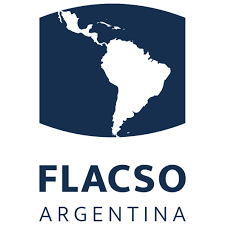Instrucciones a revisores
La Revista de Trabajo Social valora el trabajo realizado por los revisores expertos en la comunidad científica, que brindan un servicio esencial al proceso de excelencia de la publicación, impulsando la investigación dentro de sus campos de especialización. El proceso de revisión por pares es un paso esencial para el desarrollo de la investigación en todas las áreas temáticas.
Los autores e investigadores se benefician al mejorar su trabajo y desarrollar su conocimiento. Los revisores también se benefician de poder leer investigaciones de vanguardia antes de la publicación y antes que cualquier otra persona en el campo. También tienen la satisfacción de saber qué están contribuyendo directamente al desarrollo de su campo científico.
En el siguiente texto se entrega información y recursos, para apoyar la labor de revisor de la Revista de Trabajo Social.
Ética y responsabilidad
La Revista de Trabajo Social se compromete a mantener la integridad del trabajo que publica. Además, presta especial atención a los problemas de infracción de derechos de autor, plagio u otras infracciones de las mejores prácticas en publicación. El objetivo de la revista al respecto, es proteger los derechos de los autores, labor que se respalda, como primer paso del proceso editorial de los artículos, con el uso del software de análisis de similitudes, “Similarity Check”, a todo artículo presentado. De esta manera el Equipo Editorial pretende proteger la reputación de la revista contra las malas prácticas de publicación.
Todos los manuscritos recibidos se evalúan de forma anónima por expertos (sistema doble ciego). Si un revisor descubre la identidad del autor a través de cualquier medio (como identificar un trabajo anterior o leer un artículo presentado en una conferencia), debe comunicarse con la Editora de la revista de inmediato.
La revista recomienda que, si los revisores sospechan alguno de los siguientes problemas, en cualquier artículo que estén revisando, se comuniquen con la Editora de la revista para discutir la situación, sin demora. Se recuerda a los revisores que deben mantener la confidencialidad de toda la información sobre estos asuntos y no discutirlos con colegas que no sea la Editora de la revista. Aspectos como:
- Si sospechan que el documento está duplicando el trabajo de los autores
- Si sospechan que puede haber problemas con la ética de la investigación
- Si sospechan que puede haber un conflicto de intereses no declarado en el manuscrito (los editores pueden tener más información sobre esto que usted, por lo que es mejor verificarlo).
Conflicto de intereses
La Revista de Trabajo Social recomienda que los revisores analicen detenidamente, antes de realizar la revisión, sobre sus posibles conflictos de interés relacionados con la evaluación del manuscrito. A veces, el revisor puede tener un posible conflicto de intereses al revisar un manuscrito en particular. Por ejemplo:
- Puede ser un colega cercano de los autores
- Puede ser un competidor del autor o autores del manuscrito en su misma área de investigación.
- Puede participar en un proyecto que se beneficiaría del trabajo de los autores si la revista acepta la publicación del artículo.
- Puede haber ayudado a los autores en la realización de su manuscrito.
En caso de concurran alguna o varias de las situaciones anteriores, o si algún revisor, por cualquier otra razón, se siente incómodo al revisar un manuscrito anónimo, debe informar a la Editora de la revista o a revistatrabajosocial@uc.cl, para que esta decida si es necesario buscar un evaluador diferente. Se recomienda que el evaluador se niegue a revisar un documento si tiene un posible conflicto de intereses, y es importante que declare dicho conflicto en esta etapa temprana, para evitar acusaciones posteriores que comprometan la objetividad de su informe.
Plazo límite de tiempo para enviar el informe
Una vez aceptado el compromiso de evaluar un manuscrito y notificado de su cuenta de acceso, el evaluador debe enviar el informe disponible en la plataforma (y eventualmente también el archivo del artículo con comentarios y/o “control de cambios”) a través de la plataforma editorial (con su cuenta de acceso informada al momento de invitarle a ingresar a la plataforma) dentro de un período máximo de cuatro semanas. Si por cualquier motivo el evaluador necesita un tiempo adicional para terminar el informe, debe comunicarlo a revistatrabajosocial@uc.cl
Cómo redactar el informe
Los revisores deben basar su evaluación en la calidad del manuscrito en términos de su relevancia, novedad, claridad de redacción y presentación de la información. Todas estas características están contenidas en el formulario de revisión por pares (archivo disponible junto al del artículo), donde también se abordan observaciones sobre la solvencia, la metodología, estructura y aspectos formales del manuscrito presentado.





